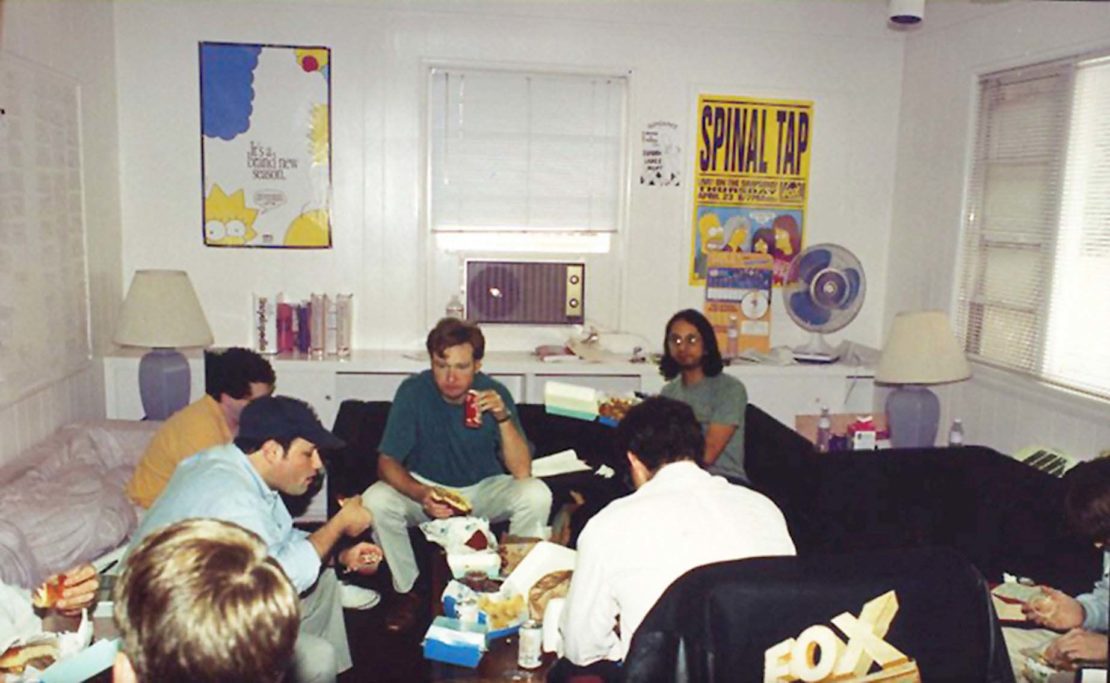Conducting experiments in laughter
Unlike most of their peers in Britain – where comedy writing tends towards being an idiosyncratic pursuit for duos and individuals – the occupants of the US writers’ room are purveyors of entertainment in bulk. These hubs function as creative laboratories, where high-stakes experimentation abounds, with writers collaborating, crafting individually and working over each other's material for shows such as Saturday Night Live, The Simpsons and Parks and Recreation. For his latest book Poking a Dead Frog, US journalist Mike Sacks interviewed writers around the world, discovering how such writing processes work, and how they are suited to some creatives but not to all.

The Writers' Room
While they vary hugely, a common set up is one where a designated member of the production team marshals a team of writers to pitch material to senior show staff. The writers then collaborate on a daily or weekly basis for the duration of a season.
The American Way
"The writers' room is a logistical thing," says Sacks. "It's very American to produce in bulk and not work on it like a jeweller. It's commerce."
The Creatives
"I think most American writers get into writing because they grow up sort of lonely and the writers' room offers up people of equivalent comedy IQ," he continues. "Then you have the others, the lone wolves, who can only produce alone. Mostly the loners don't go into TV in the US, they go into movies or print."
The Personalities
"If you're okay with producing jokes that might not be cutting edge, then you'd be okay in a writers' room," he adds. "That said, ideas can be produced that you otherwise might not have come up with. Terry Jones said of Monty Python that its collective voice was greater than the sum of its parts."
The Approach
"New writers have to be funny and incisive but you can't overstep," concludes Sacks. "It's like a hazing process and it's very intimidating."